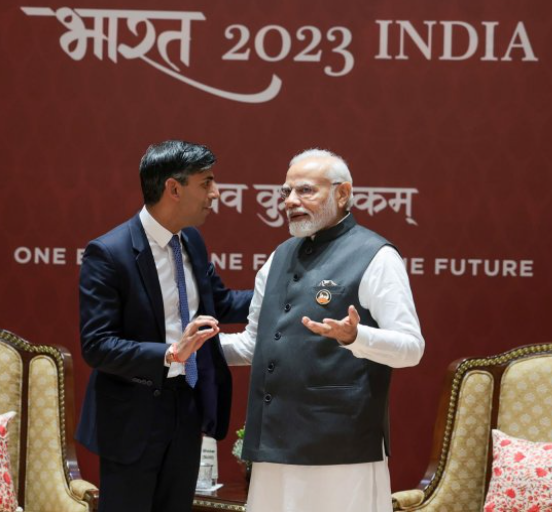..
Korea's SK ecoplant to build wind farms in Canada for hydrogen
By Yu Chung-hyeon & Kim Tae-gyu, UPI News Korea
SK's Nujio’qonik project is designed to get green hydrogen by splitting water from wind-generated electricity.
File Photo by Pat Benic/UPI | License Photo
SEOUL, Sept. 5 (UPI) -- South Korean company SK ecoplant said it has secured 670 square miles of Canada's state-owned land for building wind farms.
The Seoul-based builder said Sunday the wind farms to be located in Newfoundland would be about generating electricity and getting green hydrogen in an eco-friendly manner.
The $15 billion plan, dubbed the Nujio'qonik project, is designed to get green hydrogen by splitting water from wind-generated electricity.
SK ecoplant is joined by World Energy GH2 of Canada in the project. Nujio'qonik in the region's native language means "where the sand blows."
When fully operational, SK's ecoplant expects the facilities to generate up to 4 GW of wind power annually, along with 180,000 tons of green hydrogen.
Green hydrogen will be converted to about 1.08 million tons of green ammonia each year, which will be transported to various continents, including Europe.
An increasing number of governments and corporations have been tapping into hydrogen as an alternative to fossil fuel, but most depend on grey hydrogen.
While grey hydrogen is produced from natural gas and does not capture the greenhouse emissions, green hydrogen is climate-neutral and attractive to governments as means to an eco-friendly strategy for sourcing.
"As a key player in this cross-continental green hydrogen project, we are fully dedicated to pioneering the global hydrogen ecosystem at an accelerated pace," SK ecoplant CEO Park Kyung-il said in a statement.
"We expect to be one of the leaders in the commercialization of green hydrogen by 2025 and are determined to ensure that Nujio'qonik project will progress smoothly," he said.
G20 makes virtually no progress against Climate Change
'Phasedown'
On climate, too, the G20 found minimal common ground, despite meeting in what the EU's climate monitor says is likely to be the hottest year in human history.
With major fossil fuel producers including Saudi Arabia, Russia and Australia – and coal-dependent nations such as India and South Africa – around the table, there was no overarching commitment to phase out the polluting fuels.
Such a measure was deemed "indispensable" by the United Nations just a day earlier to achieve a net-zero goal.
Instead, G20 countries pledged to triple renewable energy sources by 2030 while committing only to a "phasedown" of coal "in line with national circumstances".
The G20 leading economies account for 85 percent of global GDP and a similar amount of global climate-warming emissions.
While some welcomed the group's commitment to renewables, campaigners Global Citizen decried its reluctance to ditch fossil fuels.
"This is a terrible signal to the world, especially the poorest and most vulnerable countries and populations, that suffer most from climate change", said the NGO's vice president for global advocacy Friederike Roder.
(AFP)
===========================================================================================
Rishi Sunak raises the temperature on Climate Change
But there's no pragmatic, proportionate and realistic route to Net Zero
MELANIE PHILLIPS
SEP 22, 2023
Wind turbines, Holderness, Yorkshire. Britain’s prime minister, Rishi Sunak, has announced some mild adjustments
to his Net Zero policy and the roof has fallen in on him.
If there was any doubt that the climate change cult has caused a mass derangement of the mind, the reaction to Sunak’s minor rebalancing act provides a graphic demonstration.
He has merely announced a five-year delay in the ban on petrol and diesel cars, bringing the UK into line with the EU’s 2035 deadline ban. New oil boiler sales were due to be banned in 2026, a deadline now delayed until 2035. New gas boiler sales will still be banned in 2035. A new exemption will be created for households where heat pumps would be ineffective, meaning that around one in five will still be able to buy a new oil and gas boiler even after 2035. To encourage people to continue to install heat pumps where they can, the cash grant from the government will rise from £5,000 to £7,500.
Er, that’s it. Those were the changes to policy. This produced mass hysteria, with cries that what Sunak had announced was “totally evil” , “dangerous and desperate”, “a betrayal of our planet survival plans” and a “moment of shame”. There was a call for an instant general election.
In vain, Sunak insisted that he was still committed to Net Zero but that it couldn’t be right to inflict intolerable costs on already hard-pressed families. In vain he warned:
If we continue down this path, we risk losing the consent of the British people.
But of course, the whole point is that climate change doomsayers don’t care about intolerable hardship. They don’t care about people. On the contrary, people are the problem. People are the reason that the planet is about to fry and die. And so if people resist policies to prevent the extinction of the planet, the state must force people to comply.
We are not dealing here with a cause whose proponents can process demonstrable facts and evidence. They are gripped by a certainty that is so overwhelmingly powerful, so apocalyptic and so absolute that no facts or evidence can be allowed to challenge it and those who produce it must be exiled from public debate. We are dealing with a quasi-religious cult; we are dealing with fanatics; we are dealing with a green version of Salem.
Various conservative commentators have hailed Sunak’s rebalancing announcement as a sign that he isn’t the timid technocrat they thought he was and that he may now be turning into a true conservative.
I’m afraid that I am somewhat underwhelmed.
================================================================================================





No comments:
Post a Comment